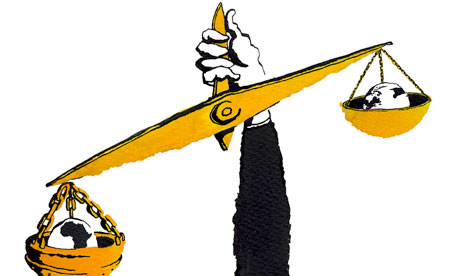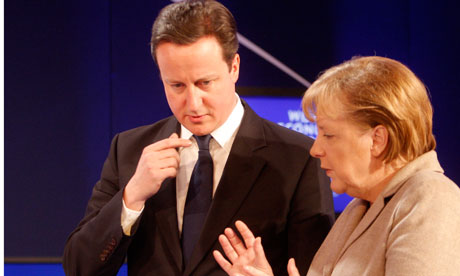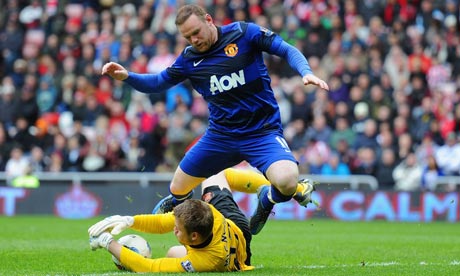All for One, One for All
Simon Hughes in Cricinfo
It was in 1997 that the chairman of the ECB, Lord MacLaurin, declared
England would be the best team in the world within a decade. His
aspiration was ridiculed at the time - and two years later England sank
to the bottom of the unofficial Wisden world rankings. In 2011, with the
4-0 win over India, they finally realised their ambition. Four years
late, perhaps, but no one was counting - even if the calculators were
out again in 2012 when they lost 3-0 to Pakistan.
There were many reasons for their elevation, not least the decline of
other, once distinguished, sides. But to cite that alone would be to
belittle England's feat, which was the result of considerable talent,
careful planning and total dedication. To attain sporting predominance,
it was ever thus.
Central contracts, introduced during Duncan Fletcher's regime, in 2000,
were a major factor. They gave the players a sense of belonging at
international level, empowered the coaches to work closely with their
charges and, vitally, gave them time. England now have a backroom staff
who at times outnumber the players. While this arouses some scepticism
in the media, especially among the in-my-day fraternity, there is no
doubting their worth as England transformed the art of cricket into
something more scientific. In that spirit, here is a suitably ordered
analysis of their route to the top.
1. The right stuff
It all began when Andrew Strauss and Andy Flower, two determined and
ambitious men, joined forces in early 2009. Their first step was to
identify players with the right character, and sift out anyone not
completely in tune with the team's goals. Chief among these were Andrew
Flintoff - emblematic as ever as he approached the end of his career,
but a law unto himself - and his faintly lethargic sidekick Steve
Harmison. Flower recognised the team was sprinkled with what he regarded
as individual plcs and saw the importance of selling them off. He and
Strauss developed a slogan, "The team is not a hire car", which
encouraged the players to treat it with care and respect, rather than
take advantage of it like a hatchback leased from Avis. They introduced a
new level of commitment, consideration and honesty, and everyone bought
into the ethos. Now, there was genuine delight at each other's
successes.
2. Cover all bases
Keen to draw on ideas from other sports, Flower went to The Oval soon
after taking over to watch a game of American football, strangely
enough. He was struck not only by the number of coaches employed by the
NFL's Green Bay Packers, but by the meticulous organisation of the
pre-match training. As a result, England rehearse their roles with all
manner of accessories. There are bright orange ramps off which close
catches are skimmed; extra-thin bats for slicing slip catches; rubber
clubs for whacking balls into orbit; springy stumps or mini-goals to shy
at; and small square frames of elasticated mesh off which the ball
ricochets to replicate bat-pad catches. Every possible fielding scenario
is visualised and practised with total concentration. Unsurprisingly,
England's out-cricket has been consistently better than anyone else's,
while Jimmy Anderson - who among other key positions now stands at slip
to Graeme Swann - is possibly the best all-round fielder England have
ever had.
3. Wot no football?
Warm-ups with a kickabout had become an incongruous cliche´: in no other
sport do players prepare by playing, well, another sport. Since the
arrival as fitness coach of Welshman Huw Bevan, the former conditioning
coach of the Ospreys rugby union team, England's training has been more
rigorous, while the drills fit the disciplines. Fast bowlers are taken
through a succession of 24 short sprints to replicate a four-over spell.
Batsmen bat overs and are ordered to run the occasional three during an
enervating net. Fielders are carefully filmed to pinpoint their
biomechanical strengths and weaknesses. Data relating to successful
catches, diving stops and run-outs is also collated by assistant coach
Richard Halsall.
With an incessant schedule and frequent back-to-back Tests, stamina is
vital. By keeping training varied, Bevan has raised fitness standards to
almost Olympic levels. One of Flower's favourite moments of the 2010-11
Ashes win came when Jonathan Trott, after batting more than eight hours
for an undefeated 168 in Melbourne, still had the energy, alertness and
agility to swoop low at extra cover and run out Phil Hughes early in
Australia's reply. The practice - amusing to some - of running over to a
team-mate to congratulate him after a good stop not only induces a
feeling of claustrophobia in the batsman but wards off lethargy in the
field.
4. The whole world in one place
For some time England have led the field in cricket gadgets. Following
on from Merlyn, an ingenious piece of engineering that can propel any
kind of spin to precise specification, was ProBatter, a souped-up
bowling machine that had the approach and delivery of opposing bowlers
projected, film-like, on to its front to face the batsman. Using
Hawk-Eye data, it can even reproduce actual overs from Tests.
This is as close as it gets to cricketing time travel: if you didn't
handle a spell very well first time round, now is your chance to make
amends. In effect, ProBatter transports the international game's bowling
brethren to the nets at the ECB Academy in Loughborough. There is also a
device that measures the amount of revolutions imparted by a spinner;
unsurprisingly, Swann scores highly.
5. Pinpoint accuracy
England collect a wealth of data on their opponents. For any opposing
batsman, the pitch is divided into coloured squares, with a statistic in
each one revealing how the batsman fares when the ball lands there. In
some cases, it confirms what everyone already knew: Mike Hussey, for
example, is brutal against anything short and wide. But it also offers
the bowlers clues about a batsman's weaknesses: in 2011, it proved a
major aid in combating Sachin Tendulkar, as England plugged away outside
off in the knowledge this was the best means of keeping him quiet.
Most significantly, England had the bowlers to put these plans into
action. Anderson, in particular, can land the ball in the same spot time
after time, though he is also extraordinarily versatile. Two deliveries
from the recent past stand out: the ball to dismiss the left-handed
Hussey for eight
in Melbourne,
tantalisingly pitched a fraction outside off stump, just short of a
half-volley, inviting the drive, then nipping away a fraction to take
the edge; and a near mirror-image to the right-handed Virender Sehwag in
the second innings
at Edgbaston.
The plan had been to bowl straight as a die, but Stuart Broad said in
the dressing-room beforehand: "I've just had a vision: Sehwag caught
Strauss bowled Anderson zero." Anderson decided to offer the Indian
opener, on a pair, the carrot of a driveable ball. Just as Broad had
predicted, Sehwag had a swish and sliced it to Strauss at first slip to
depart for a king pair. Despite their superb discipline, then, the
bowlers were never dissuaded from going with their hunches.
6. Cherish the ball
The potency of a new ball is taken as read, and England generally make
excellent use of it. With the help of bowling coach David Saker they
focused on the periods when a ball is older and less effective, and
worked on different strategies. Led by Anderson, they developed the
wobble-seam delivery for use when the ball has lost its initial shine -
after about 20 overs - but still has a proud seam. Released with the
seam slightly canted, rather than bolt upright, the ball lands on the
edge of the seam, then moves unpredictably. With meticulous care, they
were also able to find reverse-swing earlier, sometimes by the 12th
over. The key is to keep the ball scrupulously dry, so it is kept off
the grass, or bounced on bare, rough parts of the square, and
religiously passed back to the bowler via the sweat-free Alastair Cook.
7. Don't change gear
If bowlers are Test-match finishers, then batsmen do the spadework. But
until recently England have rarely run up mammoth totals. Watching the
way prolific subcontinental batsmen such as Mahela Jayawardene and Rahul
Dravid assembled their scores, they realised the secret was to keep
playing the same way throughout an innings, rather than seek to go
through the gears and finally dominate the bowlers. Players such as Cook
and Trott abided by this philosophy, picking up their runs quietly,
unobtrusively, incessantly. They never sought to score in unfamiliar
areas, sticking instead to their own risk-free plans. Cook's
extraordinary propensity to avoid sweating - his sole pair of batting
gloves were still bone dry after his marathon 294 against India at
Edgbaston - has certainly helped.
Graham Gooch - England's leading run-scorer and now the batting coach -
has been a major influence in this regard. He focused the players' minds
with simple sayings like "play straight - be great", and encouraged
them to convert "daddy" hundreds (150-plus) into "grand-daddies"
(200-plus). He has also been unstinting in his support, whether feeding
them thousands of balls with his ingenious Sidearm thrower, or hardening
their mental approach. The result was six individual double-centuries
in 12 Tests and seven team totals of over 500.
8. The end of the tail-end
One statistic put the England-India series into perspective: England's
last five wickets averaged 57 runs each; India's 20. This was no
accident, for the England lower order spend almost as much time in the
nets as the main batsmen. Importantly, though, there is no pressure
applied to them from the top and middle order: each lower-order batsman
("tailender" now feels obsolete) is encouraged to be positive and do
what comes naturally, as long as it is not reckless and takes into
consideration both the batting partner and the match situation.
9. Doing the maths
Flower was profoundly influenced by Moneyball, Michael Lewis's
fascinating account of how the Oakland Athletics baseball team used
statistics and computer analysis to improve their results. The
recruitment of Nathan Leamon - cricket coach, maths boffin, and known in
the team as "Numbers" - has been significant. On a daily basis, he
enters individual, team, ground and other historical data into the Monte
Carlo simulator, a specially designed computer program which forecasts
the probability of various eventualities. These projections form the
basis of England's decision-making - from team selection and what to do
at the toss, to declarations, field settings and bowling strategies.
Leamon played the Melbourne Test of 2010-11 through his simulator
thousands of times in advance, concluding that England were 15-20% more
likely to win if they bowled first. The statistics not only convinced
England, but also invigorated them after their defeat at Perth: on
Boxing Day, at the spiritual home of Australian sport, they put the home
side in and promptly skittled them for 98. Three days later, the Ashes
had been retained.
10. A constant quest
As a player, Flower had a restless desire for self-improvement. As a
coach, he has imbued that urge in his team, though he admitted he fell
short of his own high standards before the series against Pakistan in
the UAE; if that was untypical, his honesty was not. Flower says he
tries to make each individual keen to discover how good they can
possibly be, which is why he and the coaching staff offer the players
regular challenges to better themselves. The squad met at Cardiff Castle
at the beginning of last summer to discuss how they could continue to
progress. All the bowlers and three batsmen - Cook, Trott and Pietersen -
were regarded as having attained world-class status after the Ashes,
but others were lagging behind. By the end of last summer, during which
the bowlers continued to reign supreme, England had four batsmen (now
including Ian Bell) in the world top 10, two genuine allrounders (Broad
and Tim Bresnan), plus Matt Prior, who had the best batting average of
any England wicketkeeper. In short, they had no weak link. In the end,
it was hardly surprising they crushed India.
Between the nadir of 51 all out in Jamaica in February 2009 and the end of 2011, England played
34 completed Tests,
won 20 and lost only four. When asked to pinpoint one underlying reason
for their success, Strauss said simply: "A team working together."
While this may sound tautological, in high-level sport it is notoriously
hard to achieve. Just ask Martin Johnson or Fabio Capello.






